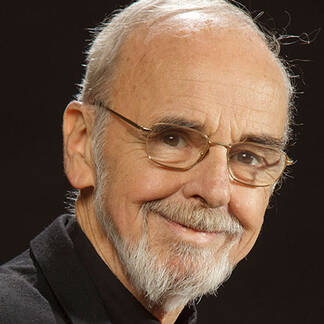
John F. Kavanaugh, S.J., was a longtime philosophy professor at the University of St. Louis and a frequent contributor to America. He died in 2012.
For many years at Saint Louis University, as the deep winter turns, the Philosophy Club has sponsored a “Summathon.” The goal is to read aloud, in any language, the entire Summa Theologica --at least its larger, meaty responses--of St. Thomas Aquinas. I think it’s a great idea, and I have taken part over the years with our graduate and undergraduate students on the feast of the saint, Jan. 28.
At the time of this writing, we are approaching the last sections of the huge work; but somehow, I wish we could give a day to the key passages that embody Aquinas’s spirit and wisdom. If you just "drop in"on the Summa, it can be like inspecting a cathedral with a magnifying glass, concentrated on some dusty nook or corner. You can forget the great arching edifice of the cathedral itself.
As I approach my 70th year, I realize that Aquinas has been a "home plate" for me, a place where my serious thinking started and the place to which I’m always led. There are many philosophers, writers and artists whom I have held close in inspiration, but Aquinas is always on my list of top 10 historical people for whom I give thanks.
I am reluctant to recommend the long and often arduous journey of reading Aquinas, but I would like to share with you some passages--reasons why this great scholar-saint has walked with me as a vade mecum on my groping way to God. With all the problems I could write about--ecclesiastical, political and global--so pressing and sometimes depressing, the words of Aquinas serve as anchors for me, a grounding against the winds of history. If that is hard to understand, here are just a few sentences of his that are probably more important than any ideas I might offer concerning the ways of the world and its history. Each is worth a day of meditation
1. In the field of human science, the argument from authority is weakest.
Among the many editions and translations of Thomas Aquinas’ work, I have found Thomas Gilby’s two handy collections of philosophical and theological texts quite helpful over the years. His thematic approach can guide your interest and lead you to the primary text. Thus, in the first quotation below, the reference is to the Summa Theologica, Ia (First Part) Ia (Question One) 1 (Article One) ad.2 (His answer to objection two). That citation will lead you to the text, whether the translation is in the Benziger collection or in the multi-volume Blackfriars translation. The specific quotations I used in the America column are marked by an asterisk. Let me know if there are favorites of your own that I should consider or if, over the years, I have muddled the citation.
General Approach to Reality
*1. In the field of human science, the argument from authority is weakest. Summa Th. Ia.1. ad 2










